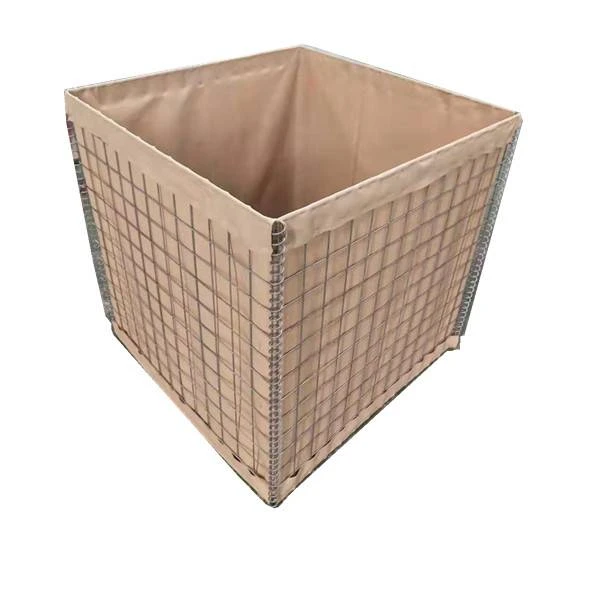
Oct . 13, 2024 00:08 Back to list
types of field fence
Types of Field Fences A Comprehensive Guide
Field fencing is essential for managing livestock, increasing agricultural productivity, and protecting crops from wildlife. Various types of field fences suit different purposes, environments, and animal species. Understanding these options can help farmers, landowners, and property managers choose the right fencing solution for their needs. This article will explore the most common types of field fences, their features, benefits, and ideal applications.
1. Barbed Wire Fencing
One of the oldest and most popular forms of field fencing is barbed wire. Traditional barbed wire consists of twisted strands of wire with sharp barbs at regular intervals. This design deters animals and unauthorized access due to the risk of injury.
Benefits - Cost-effective Barbed wire is relatively inexpensive and easy to purchase in large quantities. - Versatile Suitable for enclosing large areas, making it ideal for cattle ranches and open pastures. - Low maintenance Once installed, barbed wire fencing requires minimal upkeep.
Ideal Applications Barbed wire is mainly used for larger livestock like cattle and horses, where the risk of escape or intrusion is higher.
2
. High-Tensile Wire FencingHigh-tensile wire fencing consists of stronger, thinner wires that are tensioned during installation. This type of fence is designed to withstand significant pressure and resist stretching over time.
Benefits - Durability High-tensile wire is resistant to rust and wear, providing a long-lasting solution. - Cost-effective fencing with minimal posts The strength of the wire means fewer posts are required, reducing installation costs. - Flexibility It can be used for various livestock, including sheep, goats, and even exotic animals.
Ideal Applications High-tensile wire fencing is ideal for larger farms requiring temporary or permanent fencing solutions, especially for rotational grazing systems.
3. Electric Fencing
Electric fencing uses a mild electric shock to deter animals from testing the boundaries of their enclosures. It can be used alone or in combination with other fencing types to enhance security.
types of field fence

Benefits - Highly effective Electric fencing prevents animals from straying without the need for numerous physical barriers. - Cost-efficient over time While initial installation can be higher, maintenance costs are usually lower than traditional fencing. - Easily adjustable Electric fencing can be easily reconfigured or expanded if necessary.
Ideal Applications Electric fencing is suitable for various livestock, including pigs and sheep. It is also effective for keeping wildlife at bay, safeguarding crops or gardens.
4. Stock Fencing
Stock fencing generally consists of vertical and horizontal wires with specific spacing, creating a grid-like structure that keeps animals in while allowing visibility. This type is primarily designed for smaller livestock.
Benefits - Visibility Stock fencing provides good visibility for both animals and humans, helping with monitoring. - Safety The design reduces the risk of injury to livestock. - Versatility Available in various materials, including wire and woven options, stock fencing can be tailored to specific needs.
Ideal Applications Best suited for sheep, goats, and other smaller livestock species, stock fencing is highly effective on farms requiring division of different animal types or rotational grazing.
5. Woven Wire Fencing
Woven wire fencing, composed of horizontal and vertical wires woven together, provides a strong and flexible option for containing livestock. This type of fence is especially good for uneven terrain.
Benefits - Robust construction The woven design provides enhanced strength and durability. - Flexible installation It can follow contours in the land, making it ideal for hilly or uneven areas. - Multi-species Suitable for different kinds of livestock, including sheep and goats.
Ideal Applications Woven wire fencing is an excellent choice for mixed-use farms where various animal species need to be contained.
Conclusion
Selecting the right type of field fence is critical for effective livestock management and land protection. Barbed wire, high-tensile wire, electric fencing, stock fencing, and woven wire fencing each have unique benefits and applications. By evaluating the specific needs of their land and livestock, farmers can choose the most appropriate fencing solution to ensure safety, security, and efficiency in their agricultural practices. With proper installation and maintenance, these fences contribute significantly to the overall success of farming operations.
-
Why a Chain Link Fence is the Right Choice
NewsJul.09,2025
-
Upgrade Your Fencing with High-Quality Coated Chicken Wire
NewsJul.09,2025
-
The Power of Fence Post Spikes
NewsJul.09,2025
-
The Best Pet Enclosures for Every Need
NewsJul.09,2025
-
Secure Your Property with Premium Barbed Wire Solutions
NewsJul.09,2025
-
Enhance Your Construction Projects with Quality Gabion Boxes
NewsJul.09,2025
Products categories











